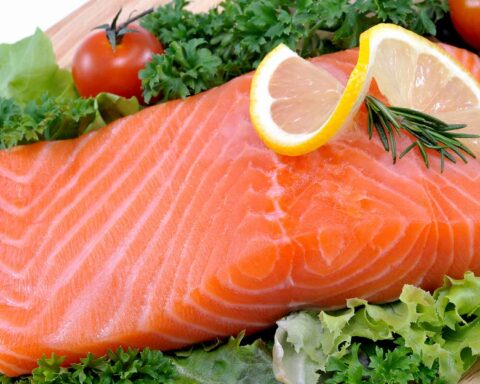Focusing on whole foods instead of highly processed foods is an easy way to go healthy. It’s even healthier if you try more plant-based sources.
Paleo, Mediterranean, and vegan diets are some of the most popular diets mentioned whenever healthy foods are the topic of the day. And that’s basically true, since scientists, nutritionists, and health practitioners now recommend whole foods plant-based diets for good health. Knowing how to get started is good for you as you easily find a way of fitting in. This article is like your primer, as it helps you know everything you need to know about the whole food plant-based diet. With this kind of information, you are set and ready to start off.
Understanding whole food plant-based (WFPB) diet
If you thought that the WFPB diet is a particular eating plan, you are off it since this diet is more of a lifestyle and less of a strict eating plan. Actually, there is no best way to define the WFPB diet. Still, a few guidelines govern a person’s food choice when they are on the WFPB diet. Such principles encompass:
- Avoiding or limiting animal products (the extent of animal product consumption varies)
- Being mindful of whatever you eat and the food quality, meaning try as much as you can to do local organic foods
- Avoiding highly processed foods
- Focusing on whole foods such as grains, nuts, seeds, legumes, fresh fruits, and vegetables
- Minimizing the consumption of refined sugar, highly processed oils, and white flour.
Thus, a person should not mistake WFPB diets for vegan or vegetarian diets. Most vegans abstain from eating any animal products, including seafood, honey, dairy, and poultry. Vegetarians may avoid poultry but still take dairy, seafood, and honey. However, with WFPB diets, the extent to which people include animal products varies, but the users remain observant of the principles stated above.
The diet may help with weight loss and general health
Obesity and overweight cases are now an epidemic, with more than 65% of adults in the US suffering from being overweight and obese. Yet, one simple way to shade off the extra pound and remain healthy in the long run is to be mindful of what you eat all the time. Research has proved beyond any doubt that a plant-based diet such as the WFPB diet helps a person lose excess weight over a short period, and even maintain the new weight over a long period, provided that a person sticks to the diet.
Two different studies in the US showed that people on the WFPB diet lost more than 4.5 pounds in four months, and were able to retain the new weight even one year later. The explanation for this is easy; the WFPB does not add unnecessary fats to the body. As long as a person observes the right proportions of food while in this diet, calorie intake also goes down, making weight loss and maintenance easy. Besides, just excluding processed and refined foods such as candies and sodas in the WFPB diet goes a long way to aid a person to lose weight and maintain the new weight gained.
A WFPB diet is good for the natural environment
Studies link the WBP diet to environmental conservation as many on such a diet are environmental-conscious and carry along with environmental footprints. As you diverse your eating towards plant-based choices, you lower the need for land on factories, reduce the number of greenhouse gases emitted, and also conserve water and plants. All this has a bearing on the natural environment, ultimately contributing to planet conservation.
One analysis of more than sixty studies pointed out plant-based diets as the ultimate way to go to conserve the environment. ‘Pescatarian, vegetarian, and vegan diets contribute to 50% less water use and 70% less greenhouse emission,’ the researchers observed. In addition, when the locals focus on locally generated plant-based foods, the need for factories is reduced. This also ensures that the local farmers are promoted, lowering the need for imports and stabilizing a country’s economy.
A WFPB diet takes care of health conditions
You will not only lose weight and fats by focusing on a WFPB but will keep other health conditions at bay. Such conditions include;
Heart disease
Depending on your food choices while on the WFPB diet, you can take care of your heart. For instance, inclining your eating to legumes, nuts, seeds, cereals, vegetables, and fresh fruits definitely helps take care of your heart. On the other hand, fruit juices and sugared drinks may risk your heart condition even though you focus on a plant-based diet.
Cancer
Cancer is a global killer disease whose risk can also be reduced by taking the WFPB diet. One study involving more than 69,000 people concluded that following a plant-based diet that excludes eggs and milk reduces a person’s risk of suffering from gastrointestinal cancer.
Cognitive impairment or decline
Many older fellows now suffer from dementia, Alzheimer’s, Parkinson’s, or another form of cognitive decline. Yet, studies show that focusing on fruits and vegetables can lower the risk of cognitive decline in older fellows by more than 20%. This is primarily because fruits and vegetables are rich in antioxidants such as retinol, polyphenols, phenols, and flavonoids. All of these boost cognitive abilities and fight inflammation, the leading cause of the cognitive decline.
Diabetes
Besides cancer and heart disease, diabetes also claims the lives of many today because of eating refined and highly refined foods. Like in the case of heart disease, the choice of food while on the plant-based diet has a bearing on a person’s risk of suffering from diabetes. Studies involving more than 200,000 individuals have shown that including healthy choices in the WFPB diets lowers the risk of diabetes by 30-50%. Such choices can also help improve the symptoms of diabetes type 2 for those who already have the disease.
Conclusion
Whole food plant-based diet is a healthy diet that’s now being recommended than ever. There is no particular definition to this diet, but several principles guide the diet. This article has shared everything you need to know about the whole food plant-based diet, including what to observe while following the diet and what to avoid.
- FDC – Giejo Magazine Article - July 29, 2023
- MoriMa Tea the – Chinese tea culture - April 26, 2023
- Missionary Position – Least Likely To Bring You To Climax - April 7, 2023









